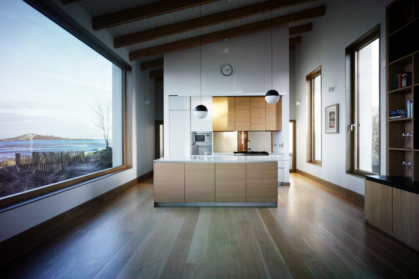Patricia’s Top Ten Tips
- Take the time to complete a wish list, make it very clear and concise, you may not be able to achieve everything on it, but this gives you the overall master plan you want accomplish.
- Get the cost experts involved from an early stage. Put the time and effort into the design and costing before going for planning to ensure you can afford to build what is on the plans. This is the time when it is all on paper and easily inter- changeable.
- Reminder to be practical about how much the existing house will cost, this is always under-estimated, and should not be ignored. An existing house and extension must work together as one home.
- The existing house should get the priority spend first, as in most situations this needs to be brought up to modern day comfort levels. Money spent on re-wiring, re-plumbing, insulation, air tightness may not be seen, but it will enhance the comfort levels of your home.
- Replacing windows and doors not only will give you a better energy efficiency, they reduce noise, are more secure, and replacing these allows you the opportunity to change the look of your house.
- Review more energy efficient heating and hot water options i.e. new high energy efficient boiler with heating controls, solar panels, heat pumps etc. Even smaller items like a new stove, fitting lower energy light bulbs, adding lagging jackets to hot water cylinders, using fire genies, all lead to reductions in utility bills.
- Be aware when choosing certain materials i.e. tiles, wooden floors, sanitary fittings that they may not be stored or in stock and have to be ordered with a possible few week’s lead in time. Late selection and ordering of these could unnecessarily hold up the on-site program.
- Don’t forget to budget for other potential costs, professional fees, utility costs such as ESB, Gas, Eir, media etc, upholstery, curtains, blinds, alarm, CCTV, Audio etc
- Always ensure you are using VAT and grant registered contractors, so you can benefit from the government lead schemes and grants in place at time of the works. Check out the SEAI Grants for the latest grants that may be available to you.
- Do allow a realistic contingency sum for unforeseen works.






